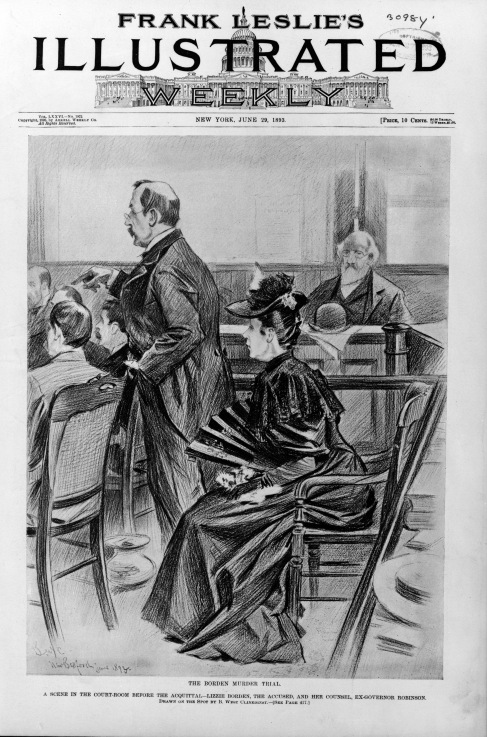Before introducing the poem Eating Pears, by Kim Welliver, to a friend, I was under the extremely naïve notion that a majority of people in the world were aware of the story of Lizzie Borden and the infamous murders of her father and step-mother with an axe one very hot early August day in Fall River, Massachusetts. The 1892 trial captivated the nation with either exaggerated or explicit details in the news depicting the gruesome murders and the circus within the courtroom itself, where at one point the actual severed heads of Abby and Andrew Jackson Borden were brought in and entered into evidence. Lizzie Borden was acquitted of the murders and lived a solitary life, never leaving Fall River.
In a description of the poem, Welliver said that when the murders took place, Lizzie Borden claimed to have been eating pears in a barn. One of the things I most enjoy about this poem is Welliver’s ability to submerge the reader in the mind of Borden and that series of events, whether real or fabricated. The reader is delivered into the consciousness of Borden so seamlessly, that there is a longing that comes across for those few moments just before her life was so horrifically upended one final time. Yet that tender longing is supplemented with jarring accounts of the difficulties within the Borden home.
Juice streamed, and dripped,
dappled my face and throat.
The house was a flint cinder
beneath the eyelid.
A constant irritant
broken only
by bright flares
of pain.
The ability to undertake such a perspective is a difficult task. So often in such sensational crimes, it is difficult to create distance between legend and an involved parties’ singular perspective. Despite having a lifelong ‘fascination’ with the Borden mystery, Welliver manages to create that distance and deliver readers to a moment in time some have yet to discover.
You can read more of Kim Welliver’s poem Eating Pears HERE at The 5-2: Crime Poetry Weekly

